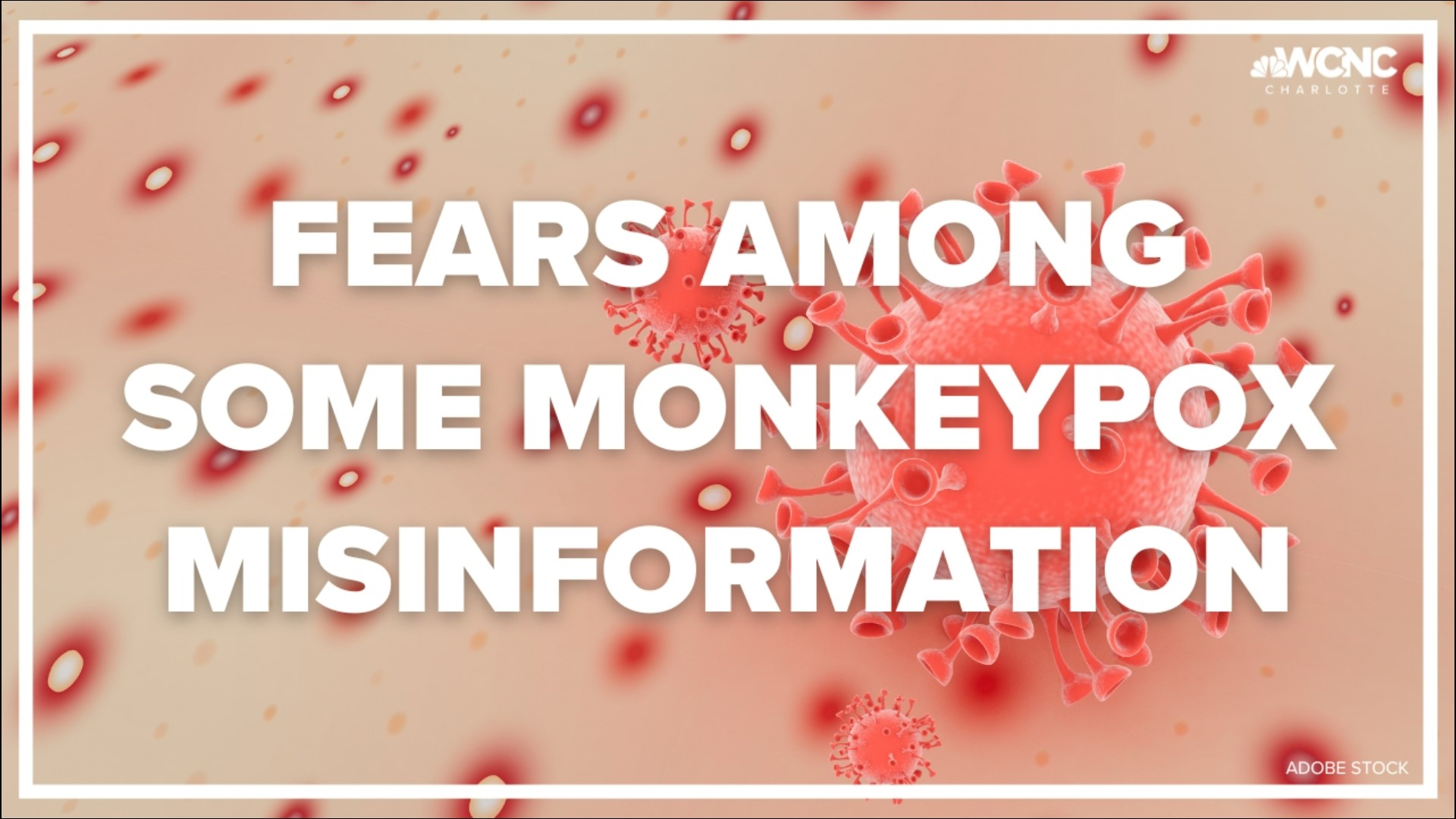CHARLOTTE, N.C. — Jermaine Nakia Lee said when he made his appointment to get tested for monkeypox, his wait time was about a week. For an infectious disease that's spreading within some communities in Charlotte, it's a long time to wait for answers, he said.
"There needs to be more done," Lee said. "There needs to be more education done. There needs to be more strategy. There needs to be more dollars put into the effort."
While the CDC still classifies monkeypox as "low" risk to most Americans, it's already spread to nearly every state, infecting nearly 5,000 people. In North Carolina, there are nearly 50 cases, and in Mecklenburg County, the latest count from earlier this week was close to 20.
Mecklenburg County Public Health is one of a handful of county health departments in North Carolina getting monkeypox vaccines from the federal government, via the state. At last check, there were close to 700 people on the county's waiting list to get the shot.
Health officials are still trying to ramp up monkeypox resources, not just testing and vaccines, but also education and outreach. Thursday night, North Carolina's Department of Health and Human Services held a town hall to answer questions about the virus, in conjunction with Equality NC.
But Lee, who is co-founder of Charlotte Black Pride, is concerned with how the education is messaged, as much as whether there's education underway.
"There are folks who are not concerned about this disease who should be concerned about this disease," Lee said.
That's because early targeting of prevention and vaccination focused on men who have sex with men, a group being disproportionately impacted by the virus. Lee fears the focus on just one community gives a false sense of security for others.
"There's going to be a rude awakening when somebody's mother or somebody's father or somebody's child is living with monkeypox," Lee said.
Public health officials have discussed the possibility of wider impacts to the community, since the virus mainly spreads through touch, close contact, and shared used clothing or linens, making transmission possible during sexual encounters, but also in friendly or familial settings.
Dr. Raynard Washington, Public Health Director with Mecklenburg Public Health, said it's important to balance the goal of informing affected groups with not stigmatizing.
"We've got to be laser-focused on trying to avoid widespread community transmission, particularly in areas of high impact," Washington said. "It's important for that community to be aware that it's disproportionately impacting them... At the same time, that risk spills over to everybody."
Lee still worries that, while the response is developing, the virus is gaining ground, and opportunities to get into the community and educate are passing by health leaders.
"There are stakeholders in our community, there are community leaders, there are amazing organizations like Charlotte Black Pride that are willing to assist the health department and our other health officials with making sure that, at least in our community... this doesn't become an epidemic," Lee said.
Contact Vanessa Ruffes at vruffes@wcnc.com and follow her on Facebook, Twitter and Instagram.

